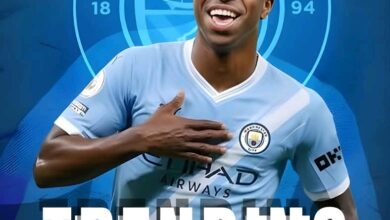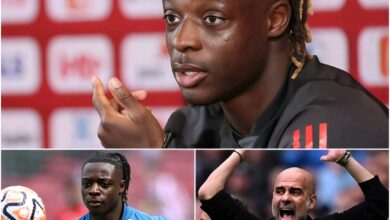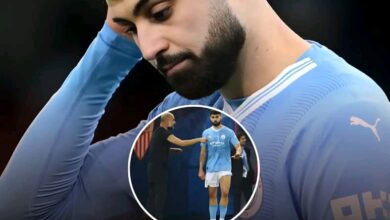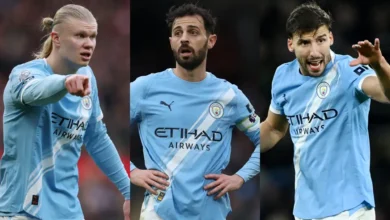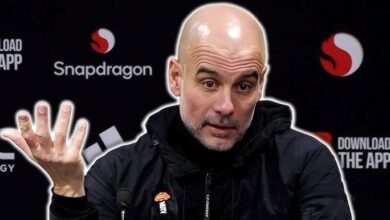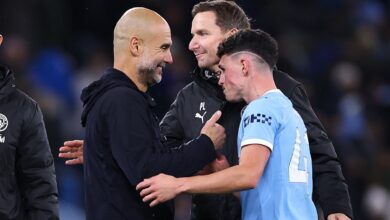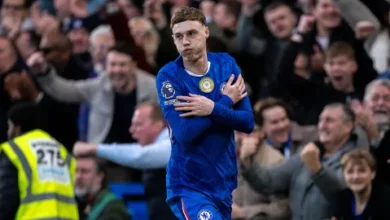The Bond That Transcends Rivalry: John McGinn and Jack Grealish’s Premier League Friendship
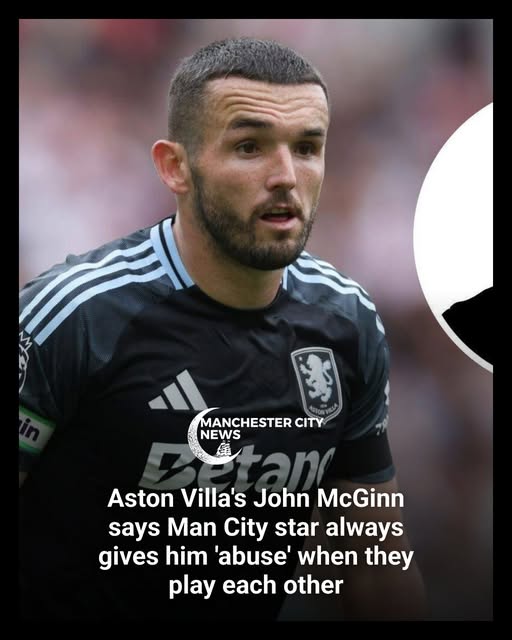
In the high-stakes world of Premier League football, where loyalty is often measured in transfer fees and friendships can be fractured by tactical fouls, the relationship between Aston Villa’s John McGinn and Manchester City’s Jack Grealish represents something increasingly rare in modern football: a genuine bond that transcends club allegiances and competitive rivalry.
The Scottish midfielder’s recent candid revelation about his interactions with Grealish during matches has shed light on one of the Premier League’s most intriguing personal dynamics. McGinn, who has established himself as one of the most recognizable figures in English football through his 206 Premier League appearances and captaincy role at Villa Park, doesn’t mince words when describing his encounters with his former teammate.
“Jack gives me a bit of abuse,” McGinn admitted in a recent Sky Sports interview, a statement that might sound harsh to outsiders but actually speaks to the deep comfort level and understanding between two players who shared the pitch 81 times during their Villa days. This “abuse,” as McGinn calls it, is far from malicious—it’s the verbal sparring of two competitors who know each other’s games inside and out, who can push each other’s buttons precisely because they care about each other beyond the 90 minutes of football.
The Villa Park Foundation: Building a Brotherhood
To understand the current dynamic between McGinn and Grealish, it’s essential to examine their time together at Aston Villa, where their partnership became one of the most effective in the club’s recent history. Their 81 appearances together weren’t just statistical entries in the record books—they represented a period of growth, struggle, and ultimate triumph that forged an unbreakable bond between the Scottish midfielder and the Birmingham-born winger.
During their time as teammates, McGinn and Grealish combined for four goals, but their contribution to each other’s games extended far beyond direct statistical collaboration. McGinn’s tireless work rate and box-to-box dynamism provided the perfect complement to Grealish’s creativity and flair. While Grealish drew defenders with his dribbling and close control, McGinn’s intelligent positioning and passing range created space and opportunities throughout the middle of the park.
The partnership reached its zenith during Villa’s promotion campaign from the Championship and their subsequent establishment in the Premier League. McGinn’s leadership qualities, which would eventually earn him the captain’s armband, were evident even then as he helped guide Grealish through the pressures of being Villa’s star player. Meanwhile, Grealish’s ability to unlock defenses gave McGinn’s forward runs and late arrivals in the box a devastating edge.
Their relationship wasn’t built solely on tactical compatibility. Both players arrived at Villa Park with something to prove—McGinn from Scottish football, looking to establish himself in one of the world’s most competitive leagues, and Grealish, a local boy carrying the hopes and dreams of a massive fanbase hungry for success. This shared experience of pressure and expectation created a mutual understanding that would outlast Grealish’s eventual departure to Manchester City.
The Psychology of Friendly Antagonism
McGinn’s description of the “abuse” he receives from Grealish during their encounters reveals a fascinating psychological dynamic that exists between former teammates turned opponents. Sports psychology research has long established that familiarity breeds not contempt, but rather a unique form of competitive edge that can actually enhance performance for both parties involved.
When McGinn and Grealish face each other now, they’re not just competing as representatives of their respective clubs—they’re engaging in a personal battle where each knows the other’s strengths, weaknesses, preferred moves, and psychological triggers. Grealish’s verbal needling of McGinn isn’t random trash talk; it’s precisely calibrated psychological warfare designed to either throw his former teammate off his game or, paradoxically, to motivate him to perform even better.
This dynamic is particularly interesting when contrasted with McGinn’s description of how Liverpool’s Andy Robertson approaches their encounters. While Robertson “knows how to get me off my game, so he’ll make me laugh,” McGinn notes, Grealish takes the opposite approach. The Manchester City winger’s “abuse” suggests a more direct, confrontational style of psychological engagement—one that speaks to their deeper familiarity and comfort level with each other.
The fact that McGinn can discuss this dynamic so openly and with obvious affection suggests that both players understand the game within the game they’re playing. Grealish’s verbal sparring isn’t meant to damage their friendship; it’s an extension of the competitive spirit that drove both players to reach the highest levels of professional football.
The Broader Context: Manchester City vs Aston Villa
The individual battle between McGinn and Grealish takes place within the broader context of Manchester City’s dominance over Aston Villa in recent years. McGinn’s record against City—seven losses, one draw, and just two victories in ten encounters—tells a story of individual frustration set against the backdrop of systemic inequality in modern football.
These statistics aren’t just numbers; they represent moments of heartbreak, near-misses, and the occasional triumph that have shaped McGinn’s career and his relationship with the game’s biggest stage. His single goal against City, scored in a 2-1 defeat in 2021, exemplifies the bittersweet nature of these encounters. Even in moments of personal success, the broader narrative of City’s superiority has remained intact.
This context makes the personal dynamic with Grealish even more complex. When they face each other, McGinn isn’t just competing against a former teammate—he’s facing a player who made the choice to leave Villa for the promise of trophies and success at the Etihad Stadium. While there’s no public animosity between the players, the subtext of Grealish’s departure adds an extra layer of intensity to their encounters.
The upcoming fixture on October 26 will provide another chapter in this ongoing story. With Pep Guardiola hoping his team arrives in better form than their current struggles suggest, and McGinn undoubtedly eager to improve his woeful record against City, the personal battle between the former Villa teammates promises to be as compelling as the broader tactical contest.
The Evolution of Modern Football Friendships
The McGinn-Grealish relationship represents something increasingly rare in modern football: a genuine friendship that has survived the commercial and competitive pressures of the contemporary game. In an era where player movements are driven by financial considerations and career advancement often takes precedence over personal relationships, their bond stands as a testament to the human elements that still exist within professional football.
The evolution of their relationship from teammates to friendly rivals mirrors broader changes in how footballers navigate personal relationships in the modern era. Social media has made it easier for players to maintain connections across club boundaries, but it has also intensified scrutiny of every interaction. The fact that McGinn can speak so openly about his encounters with Grealish suggests a maturity and confidence in their friendship that transcends public perception.
Their dynamic also highlights the unique position of players who have shared significant experiences at one club before pursuing different paths. Unlike players who have always been rivals, McGinn and Grealish bring a shared history to their encounters that adds depth and complexity to their on-field battles.
The International Dimension: Scotland vs England
Adding another layer to their relationship is the international dimension, with McGinn representing Scotland and Grealish having chosen to play for England after initially appearing for the Republic of Ireland. While they haven’t faced each other at international level recently, the potential for future encounters adds another element to their rivalry.
McGinn’s role as a key player for Scotland, where he has become one of the team’s most important figures, contrasts with Grealish’s more peripheral role in the England setup. This difference in international status could influence their club-level encounters, with McGinn perhaps feeling he has something to prove against a player who operates at the highest levels of international football.
The Scottish midfielder’s leadership qualities, which have seen him captain both club and country, give him a different perspective on their encounters than he might have had as a younger player. His maturity and experience allow him to appreciate the competitive dynamic while maintaining the underlying friendship.
The Wider Network: Football’s Interconnected Relationships
McGinn’s discussion of his relationships with both Grealish and Robertson illustrates the complex web of personal connections that exist throughout professional football. These relationships, built through shared experiences at club and international level, create a fascinating subtext to Premier League encounters that fans rarely see.
The fact that McGinn can articulate the different ways his friends approach their on-field battles—Grealish with “abuse” and Robertson with humor—demonstrates the nuanced understanding these players have of each other’s personalities and motivations. It also highlights the emotional intelligence required to maintain friendships while competing at the highest level.
These connections extend beyond individual relationships to create networks of influence and understanding that can impact team dynamics, transfer decisions, and even tactical approaches. When players know each other well, coaches must account for these relationships when preparing for matches and making in-game decisions.
The Business of Friendship: Commercial Considerations
In modern football, personal relationships exist alongside commercial considerations that can complicate even the strongest friendships. Grealish’s move from Villa to City wasn’t just a football decision—it was a business transaction worth £100 million that reflected the financial realities of contemporary football.
For McGinn, watching his former teammate achieve success at City while Villa continues to build their project represents a fascinating case study in the different paths available to modern footballers. While Grealish chose immediate success with an established powerhouse, McGinn has remained loyal to Villa’s long-term vision, accepting the risks and rewards that come with that choice.
This divergence in their career paths adds depth to their on-field encounters. When they face each other, they’re not just representing their current clubs—they’re embodying different philosophies about career management and success in modern football.
The Technical Battle: Tactical Evolution
Since their separation, both McGinn and Grealish have evolved tactically, developing new dimensions to their games that make their encounters increasingly interesting from a technical perspective. McGinn’s growth as a leader and his expanding role in Villa’s tactical system have seen him become more influential in big games, while Grealish’s adaptation to Guardiola’s system has required him to develop new aspects of his positional play and decision-making.
When they face each other now, it’s not just the McGinn and Grealish of old competing—it’s evolved versions of those players, shaped by different coaching philosophies and tactical requirements. This evolution adds unpredictability to their encounters and ensures that neither can rely solely on historical knowledge of the other’s tendencies.
The tactical chess match between their respective managers also influences their individual battle. How Villa sets up to combat City’s possession-based approach, and where McGinn fits into those plans, directly impacts his ability to influence the game and his interactions with Grealish.
Looking Forward: The Next Chapter
As both players enter what could be considered the peak years of their careers, their ongoing rivalry promises to provide compelling storylines for years to come. McGinn, at 30, brings experience and leadership to every encounter, while Grealish, having found his feet at City, continues to develop under one of football’s most innovative coaches.
The upcoming October 26 clash represents more than just another fixture in their personal rivalry—it’s an opportunity for both players to add new chapters to their intertwined stories. For McGinn, it’s another chance to improve his disappointing record against City while proving Villa’s continued growth as a competitive force. For Grealish, it’s an opportunity to demonstrate his continued development at City while managing the emotional complexity of facing his former club and teammate.
Their friendship, tested and strengthened through competition, serves as a reminder that football, despite its commercial evolution, remains fundamentally about human relationships and shared experiences. In an era where loyalty is questioned and friendships can be casualties of ambition, McGinn and Grealish offer proof that genuine bonds can survive and even thrive in the face of professional rivalry.
The “abuse” that McGinn describes receiving from Grealish during their encounters isn’t really abuse at all—it’s the verbal expression of a friendship strong enough to withstand the pressures of elite competition. It’s two players who know each other well enough to push boundaries while respecting the underlying bond that unites them beyond football.
As their careers continue to unfold, the McGinn-Grealish dynamic will undoubtedly evolve, but the foundation built during their time together at Villa Park ensures that their encounters will always carry an extra dimension of meaning. In a football world often criticized for its lack of authenticity, their relationship stands as a testament to the genuine human connections that still exist within the beautiful game.
Their story reminds us that football, at its core, remains about people—their relationships, rivalries, and the complex emotions that drive them to excel. Whether trading “abuse” on the pitch or sharing memories of their Villa days, McGinn and Grealish represent the enduring power of friendship in professional sport, proving that some bonds are stronger than club colors or transfer fees.






